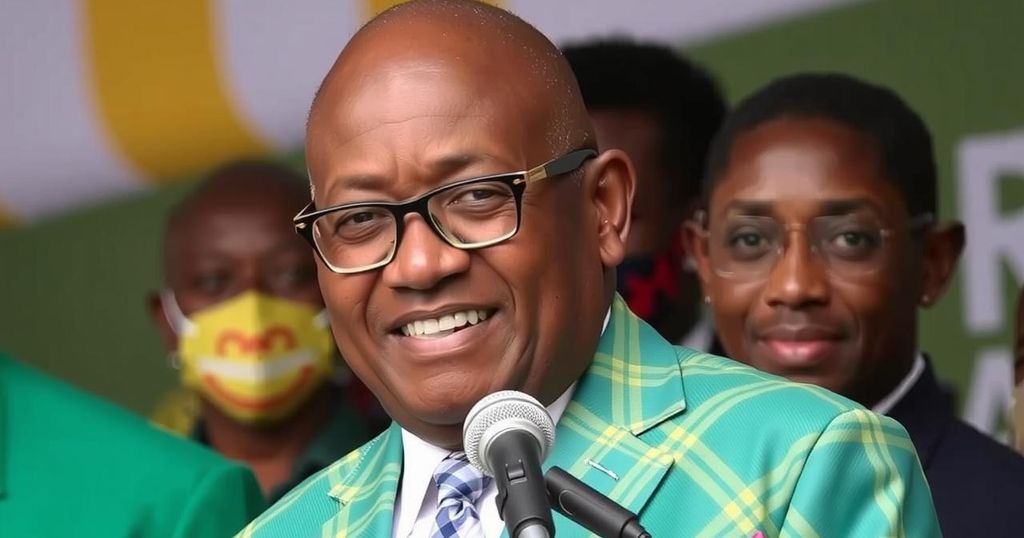John Dramani Mahama Declared Winner of Ghana’s Presidential Election

John Dramani Mahama has been declared the winner of Ghana’s presidential election after receiving 56.5% of the votes, defeating Vice President Mahamudu Bawumia, who conceded with 41%. Mahama aims to address economic challenges facing the nation post-election.
The former President of Ghana, John Dramani Mahama, has been officially announced as the victor of the recent presidential election, succeeding despite his tenure from 2012 to 2017. Mahama garnered 6.3 million votes, equating to 56.5% of the total ballots cast, according to the electoral commission. His principal rival, Vice President Mahamudu Bawumia, conceded defeat after receiving approximately 4.6 million votes, representing 41%.
With a voter turnout of 60.9%, as stated by Jean Mensa, the electoral commissioner, the results communicated a notable public sentiment, particularly amidst the prevailing economic difficulties that the country faces. Mahama characterized his victory as “emphatic,” and he has vowed to initiate comprehensive reforms during his administration, focusing particularly on economic recovery, which has resonated with young voters seeking viable solutions to the crisis.
Following Bawumia’s concession, celebrations erupted among Mahama’s supporters, highlighted by jubilant displays across the capital. The electoral process occurred during one of the most profound cost-of-living crises in recent Ghanaian history, prompting comparisons to political shifts observed globally, where opposition parties have recently gained traction against incumbents.
Mahama’s National Democratic Congress also achieved a parliamentary majority, further signaling a shift in the public’s political preferences. Analysts contend that voter discontent arose primarily from the economic situation, described as a “bread and butter issue,” emphasizing the people’s desire for transparency and effective governance. This public sentiment underscores a broader trend in electoral dynamics where incumbents may face repercussions due to economic mismanagement.
Ghana’s political landscape has witnessed significant shifts, particularly marked by the recent presidential election wherein John Dramani Mahama, a former leader, reclaimed the presidency amid widespread economic discontent. The election occurred in a challenging context of soaring living costs, which has been termed the most severe crisis in decades. This scenario posed a critical test for democracy in West Africa, characterized by recent turmoil in the region due to political instability and unrest. Mahama’s triumph reflects a broader global trend of opposition victories against ruling parties, highlighting the critical influence of economic factors on electoral outcomes.
In summary, John Dramani Mahama’s victory in the Ghanaian presidential elections signifies a response to public discontent regarding economic governance. His commitment to reform promises a potential path to recovery for the nation’s economy, considering the critical backdrop of voters’ priorities. The electoral outcome also aligns with a notable trend observed in various international contexts where opposition parties capitalize on the dissatisfaction with incumbents, emphasizing the importance of responsive and responsible governance during challenging times.
Original Source: www.clickondetroit.com







